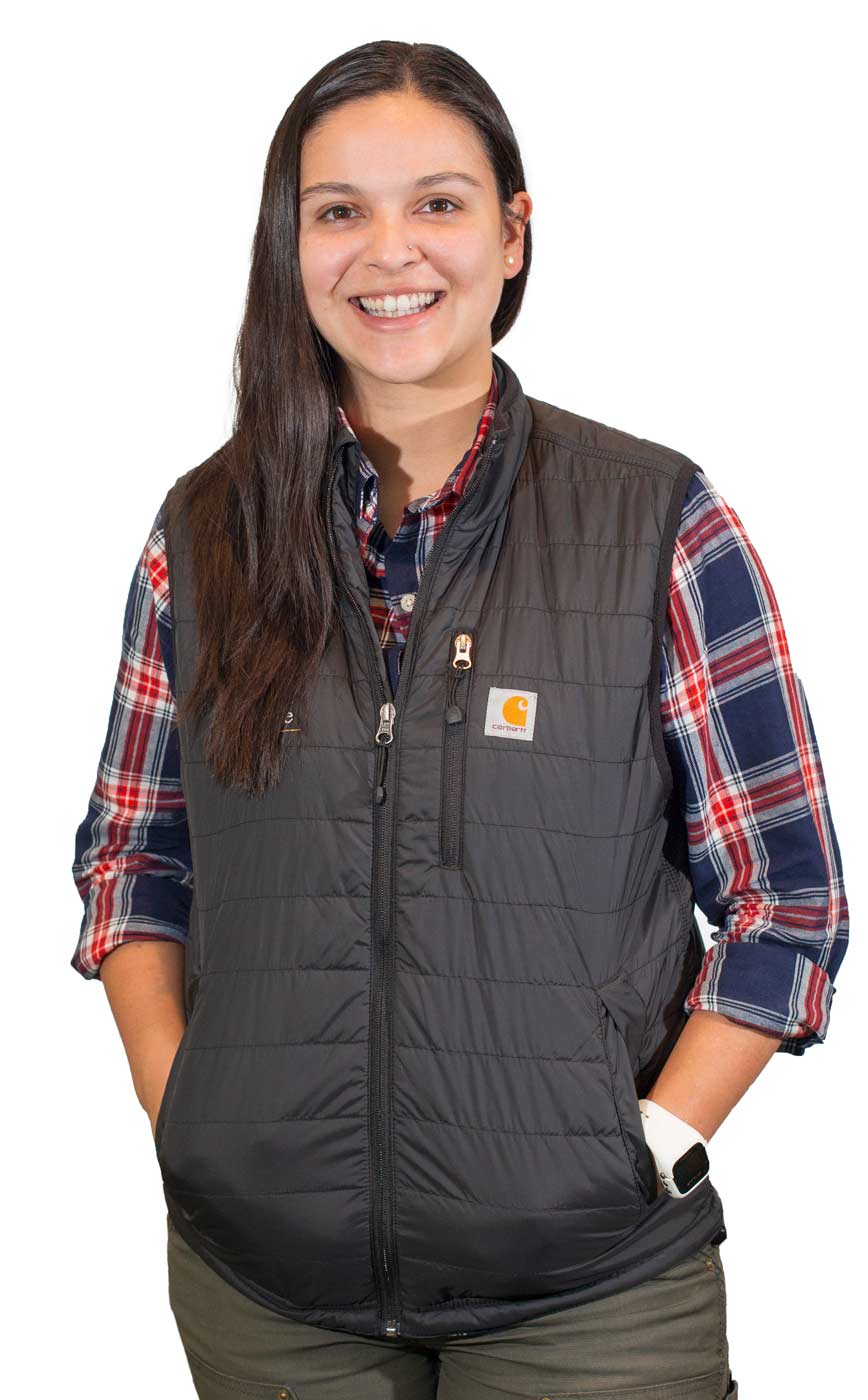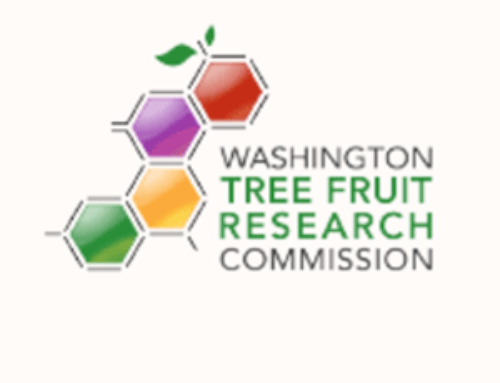family background / Devyani, a past recipient of the Walter J. Clore Scholarship, obtained a degree in viticulture and enology from Walla Walla Community College and bachelor’s degrees in psychology and Spanish from Whitman College. She was raised in Portland, Oregon, by her father, Shantanu Gupta, a computer engineer, and mother, Eloisa Vannerson, an architect.
age / 25
crops / Grapes
business / North Slope Vineyard Management
 How did you get your start?
How did you get your start?
When I was young, I think the main thing I loved about growing up in Portland, Oregon, was if you drove for 15 minutes from downtown you would be in farmland. I loved helping my mother garden and working with plants. I didn’t know how much I enjoyed living in an agricultural area until I moved to Walla Walla for school.
I learned there’s this whole thriving industry away from the city. Initially I was introduced to the wine industry through sales, marketing and wine club data.
Working with data was more in my wheelhouse, but I started to notice my interests changing toward production. I was excited walking through vineyards and checking out cellars with the owners.
They realized that I was very interested, and they even put a little pressure on me to think about working with the wines. They noticed I never talked about my college research papers with the same enthusiasm as I did vines.
What challenges come with being first-generation to ag?
Being new to the industry was a little challenging, not being part of an agricultural family. I don’t have that behind me, so I had to think about things a little differently.
For example, how do I drive a stick shift? If you’re going to learn how to drive a tractor you’d better learn how to drive a stick shift.
I love driving a forklift now, but that skill is something I doubt anyone I went to high school with in downtown Portland is doing right now.
The best part of being first-generation is that people who come from long-standing agricultural families see data nerds like me and welcome me with open arms. They don’t mind that I’ve got a lot of things to learn.
How does your education benefit you in ag?
My degree is in psychology, in cognitive psych and statistics. I was always taking heavy classes on how to crunch numbers and set up databases.
With the cognitive side I was interested in sensation and perception, which lines up perfectly with wine. There are chemistries in the product, but the actual finished interpretation of a wine, that perception, draws on your memory and personal experiences.
That’s something I can get nerdy about until the end of time. In school I was always helping out professors and I learned a lot about how they set up ways to solve problems. So, when you’re doing research, especially with precision agriculture research, I’m thinking about variables and how to ask the right questions.
What’s good about this skill, for instance, is when my boss wants to capture data for a LIVE certification review,
I can immediately put together what it’s going to look like and what needs to be calculated automatically. I’m also looking at making the data easy to access because we may have an audit at any time.
Where is the future vineyard headed?
I see precision agriculture and numbers as the essential tool for the future to make sure we’re using our resources the best way possible.
The more we know about our transpiration rates, what’s going on in the canopy and what’s going on in the soil, the better off we’ll be. There’s really no harm in numbers.
There’s a lot of work up front to collect the data, but in the end, investing in data is going to help you manage your site better. It’s the right thing to do.
What advice would you give to other young growers?
My advice to women who might be interested in going into a career in agriculture would be to seek out mentors. My bosses are exactly that.
I’ve found they are ready to provide the best advice on how to navigate situations. Even if you are a bit shy starting out, do what you can to show that you aren’t. It never hurts to just introduce yourself to somebody and find out about internships.
Internships are there to provide a stepping stone into a career and, hopefully, end up as a job. Be the person who speaks up and says, “I’ve got the answer or solution.”
Why go into agriculture?
One of my professors said, “Second to blood, wine is the most complex matrix,” and it all starts in the vineyard. Everything you do as a grower or winemaker, plays a part in the end product.
From site to site, even block to block, there are so many nuances in the grapes. One aspect I enjoy about working in wine is the lab work. I enjoy the hands-on cellar work and then running samples in the lab.
It’s also a process. You don’t just get to try again next month, you’ll have to wait until next year.
There’s a certain amount of measured patience to this industry. It tests your dedication, how you think, because there’s no quick turnaround.
What factors have helped you succeed in agriculture?
I definitely inherited the ways my parents think and problem-solve. My parents always encouraged me to be confident in those skills.
When my mom was in architecture school, she was one of two women in her graduating class, and my dad, who works at Intel, has always encouraged me to be assertive and be OK being the problem solver in the group.
—by TJ Mullinax






Leave A Comment